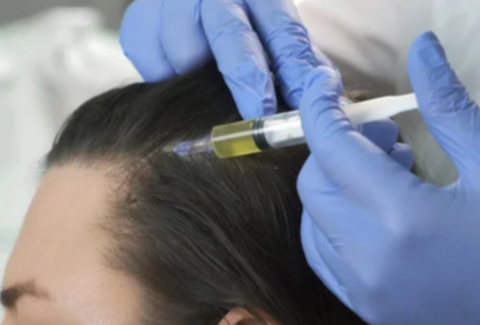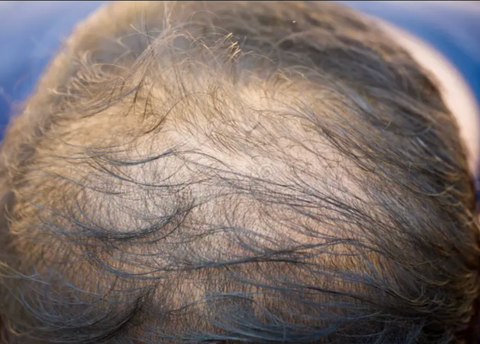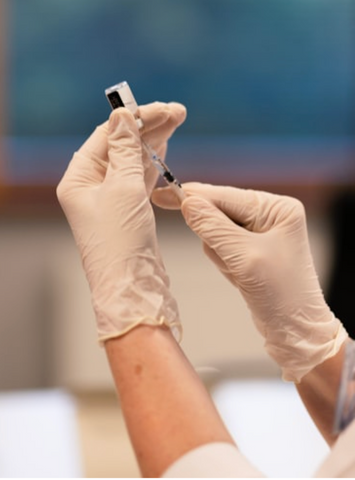Top Trichologist Boston: Expert Hair Loss Guidance
Trichologist vs Dermatologist: Which One To Consult?
When faced with concerns about hair loss in Boston, deciding between consulting a trichologist or dermatologist can be a crucial decision. Trichologists focus specifically on the health of the hair and scalp, delving deep into issues such as hair growth cycles and scalp conditions, including cosmetic concerns. On the other hand, dermatologists possess a broader scope of expertise, not only addressing hair and scalp problems but also handling various skin conditions.
While trichologists excel in understanding the intricacies of hair health, dermatologists bring a comprehensive approach to overall skin and hair care. Individuals experiencing specific hair-related issues may benefit more from
When seeking treatment for hair loss, individuals often wonder whether they should consult a trichologist or a dermatologist. Both professionals play essential roles in diagnosing and treating hair-related issues,

A trichologist is a professional who specializes in the science of hair and scalp health. They are experts in identifying the causes of hair loss, baldness, scalp issues, and hair breakage. By working closely with a trichologist, individuals experiencing hair loss can benefit from a tailored treatment plan that takes into account their unique needs and concerns.
The goal is not only to address the physical aspects of hair loss but also to provide emotional support and empower individuals to regain confidence in their appearance. Trichologists have the knowledge and expertise to address both common hair loss problems, such as pattern baldness, as well as more complex hair and scalp conditions, ensuring the effectiveness of your treatment.
Some may take a holistic approach to treating hair loss, focusing on treating the underlying causes rather than just the symptoms. Blends of oils and natural remedies are often used in their treatment plans.
Light therapy is one treatment option that trichologists may employ to address various hair loss conditions and hair loss. This therapy involves exposing the scalp to low-level light, which is believed to stimulate hair growth by increasing blood circulation and promoting cellular activity in the hair follicles. Trichologists may also recommend dietary changes, vitamin supplements, and lifestyle modifications to support healthy hair growth.
While trichologists play a crucial role in the treatment of hair loss, it is important to recognize the distinction between their expertise and that of dermatologists. Dermatologists are medical doctors who specialize in the diagnosis and treatment of skin, hair, and nail conditions.
They undergo extensive training in various aspects of dermatology, including hair disorders, and are qualified to provide a correct diagnosis for hair loss.
When to Consult a Trichologist?
Individuals experiencing persistent hair fall, thinning, bald spots, or scalp itching should consider consulting a trichologist for concerns related to their hairline and scalp concerns, including excessive sebum production and hair thickness. Early intervention from a trichologist can help prevent further hair loss, promote hair regrowth, and address scalp diseases or discomfort such as scaly patches.
If you are concerned about the health of your hair or scalp, booking an initial consultation with a trichologist is the first step toward addressing your hair loss concerns.
Trichologist’s Approach to Treatment: Nutrition, scalp, hair thinning
Trichologists take a holistic approach to trichological treatment for hair loss, focusing on identifying the root causes of the problem. They are trained to analyze the health of hair follicles, the scalp, and the overall condition of the hair, which may involve using various lines of treatment options.
Based on their assessment, trichologists develop personalized treatment plans that may include dietary recommendations, scalp treatments, hair care advice, and natural hair growth techniques, utilizing the best trichological treatments and high quality effective trichological products. With rigorous training in academic study, practical experience, and mentorship, certified trichologists become a beacon of hope for those grappling with hair and scalp issues.

By collaborating with a trichologist, individuals can benefit from a comprehensive treatment plan tailored to their specific hair loss problem.
Benefits of Consulting a Trichologist
Consulting a trichologist offers individuals access to specialized expertise in hair and scalp health. Trichologists are equipped to address a wide range of hair loss and scalp conditions, including pattern baldness, alopecia, scalp diseases, hair thinning, and breakage. Trichologists give personalized treatment plans based on the type of hair loss they are experiencing, along with valuable insights into hair care, treatment, and maintenance.
Trichologists empower individuals to make informed decisions about their hair health, resulting in effective solutions for hair loss and scalp conditions.
When to Consult a Dermatologist?
Consulting a dermatologist is advisable for severe hair loss, bald spots, or hair loss caused by skin diseases and poor nutrition. Dermatologists are the best choice for the treatment of hair loss resulting from skin diseases, such as alopecia areata, psoriasis, or eczema. If you are experiencing hair loss accompanied by skin issues, itching, inflammation, or poor nutrition, consulting a dermatologist or a trichologist who specializes in hair and scalp health is recommended to address the underlying causes of hair loss. In some cases, hair transplantation procedures may also be recommended by a dermatologist or trichologist for those with severe hair loss.

Dermatologist’s Approach to Treatment
Dermatologists personalize treatment plans to address specific hair loss problems, scalp diseases, and skin care concerns.
They use medical dermatology to diagnose and treat hair loss, scalp itching, baldness, and other hair and scalp conditions. With their expertise in accurate diagnosis, dermatologists are equipped to provide a wide range of treatment options, including medications, scalp injections, hair transplants, and cosmetic dermatology procedures to improve hair health and growth.

Benefits of Consulting a Dermatologist
Consulting a dermatologist for hair loss offers the expertise of a medical professional specializing in the treatment of hair, scalp, and skin diseases.
Dermatologists are equipped to address a wide range of hair loss causes, including skin diseases, alopecia, male pattern baldness, hormonal imbalances, and the management of skin diseases that may contribute to hair loss, such as menopause. By consulting a dermatologist, individuals can access the best results for hair loss treatment, scalp care, and the management of skin diseases that may contribute to hair loss.
One way to find a dermatologist with expertise in hair loss is to check out the American Academy of Dermatology website and explore their annual meeting, where you can find out who is doing research in this area and/or giving talks.
Expertise and Training
Dermatologists are skin, hair, and scalp experts with specialized training in the diagnosis and treatment of hair loss, scalp diseases, and skin care. They are medical doctors who have completed years of medical school, residency, and dermatology training to become experts in the field of dermatology.
Trichologists, on the other hand, are experts in the science of hair and scalp care, specializing in hair health, natural hair care, and the maintenance of a healthy scalp. They are trained to diagnose, treat, and manage hair loss, baldness, scalp diseases, and hair breakage. While dermatologists focus on the skin, hair, and scalp, trichologists have a deep understanding of hair health, natural hair care, and the specific needs of the hair follicles, thanks to their additional medical training in this specialized field.
Trichologist vs Dermatologist: Treatment Approach
Dermatologists use both medical and cosmetic dermatology to diagnose and treat hair loss, scalp diseases, and skin care concerns. They are equipped to provide a wide range of treatment options, including medications, scalp injections, hair transplants, cosmetic dermatology procedures, and skin cancer screenings.
Trichologists, on the other hand, focus on natural hair care, hair growth, and scalp health. Their treatment approach includes dietary recommendations, scalp treatments, hair care advice, natural hair growth techniques, and the use of advanced diagnostic tools to assess the health of hair follicles and the scalp.
The treatment approach of dermatologists and trichologists may vary based on the particular type of hair loss problem, the individual's needs, and the underlying causes of hair loss. Dermatologists also offer cosmetic procedures such as botox injections to address specific concerns related to the skin and its appendages.

Effectiveness of Treatments
Both dermatologists and trichologists provide effective treatment options for hair loss, scalp diseases, hair thinning, baldness, and other hair and scalp conditions.
Dermatologists offer a wide range of treatment options, including medications, scalp injections, hair transplants, cosmetic dermatology procedures, and skin cancer screenings.
Trichologists, on the other hand, focus on natural hair care, hair growth, and scalp health through dietary recommendations, scalp treatments, hair care advice, and natural hair growth techniques. For certain conditions, such as scalp diseases or fungal infections, dermatologists may prescribe antifungal creams as a treatment option.
How Our Practice Stands Out: Why Boston Chooses Us
At our Boston clinic, we pride ourselves on utilizing technologically advanced equipment and personalized care tailored to each patient's unique hair loss concerns. The first thing we focus on is our many years of experience and commitment to patient satisfaction and comprehensive treatment options, which has made us a trusted choice for individuals experiencing various hair loss conditions. We work with you every step of the way from customized treatment plans to the use of technologically advanced equipment and cutting-edge technology, ensuring that each client receives the best possible care.
Our skilled team is dedicated to staying at the forefront of hair restoration techniques, which allows us to provide exceptional results. We offer advanced solutions such as low-level laser therapy and personalized scalp stimulation treatments designed to stimulate hair growth by targeting the hair bulb and improve scalp health, including reducing bacterial load through the use of CRLAB’s trichology products, including the low energy CRLAB’s Tricopulse helmet, which contains effective diodes. This innovative approach, combined with our commitment to patient education and support, has earned us a reputation as a leading provider of hair restoration services in Boston.
When do you need Trichologist and Dermatologist?
While trichologists and dermatologists have distinct roles, there are cases where the expertise of both professionals is needed to address hair loss, scalp diseases, and skin care concerns.
Let's explore the coordination of care between trichologists and dermatologists to ensure the best treatment outcomes for individuals facing hair loss.
Coordinating Care between Trichologist and Dermatologist
Trichologists and dermatologists often collaborate to ensure holistic care for hair, scalp, and skin health. By coordinating care, trichologists and dermatologists can provide comprehensive treatment options, address the underlying causes of hair loss, scalp diseases, or skin conditions, and optimize the management of hair and scalp health.
This collaboration allows for the integration of natural hair care, hair growth techniques, scalp treatments, cosmetic dermatology procedures, medications, scalp injections, hair transplants, skin cancer screenings, and a wide range of services for the care of your scalp and treatment of skin diseases at our centre to provide the best results for individuals facing hair loss, scalp diseases, baldness, hair thinning, breakage, or skin conditions affecting the pores of your scalp, including options to enhance your hairstyle.
What is the difference between a trichologist and a dermatologist?
A trichologist specializes solely in hair and scalp conditions. They are experts in diagnosing and treating hair loss, scalp issues, and other hair-related problems.
On the other hand, a dermatologist is a medical doctor who treats a wide range of skin, hair, and nail conditions.
Trichologists and dermatologists play complementary roles in addressing hair loss, scalp diseases, skincare concerns, and the management of hair and scalp health. While trichologists focus on natural hair care, hair growth, scalp health, dietary recommendations, hair care advice, and the use of advanced diagnostic tools to assess the health of hair follicles, dermatologists are equipped to provide medical dermatology treatment options, skin cancer screenings, scalp injections, hair transplants, cosmetic dermatology procedures, and the treatment of skin diseases affecting the scalp.
By combining the expertise of trichologists and dermatologists, individuals can receive integrated care for hair, scalp, and skin health, including addressing lifestyle factors that may contribute to hair loss and scalp conditions. This ensures the best treatment outcomes for patients.
Featured Surgical and Non-Surgical Treatment Options
When it comes to hair restoration, we offer a comprehensive range of both surgical and non-surgical treatment options, including hair loss shampoo, to cater to the diverse needs of our patients. Surgical options include advanced techniques like Follicular Unit Extraction (FUE) and Follicular Unit Transplantation (FUT), which provide natural-looking results with minimal downtime. These procedures are designed to restore hair density and confidence in individuals suffering from significant hair loss.
In addition to surgical solutions, we also provide non-surgical treatments such as Platelet-Rich Plasma (PRP) therapy, which has been shown to promote hair growth effectively by enhancing blood flow. Utilizing CRLAB products and low level laser therapy (LLLT) with various wavelengths and energy of light, our non-surgical options, including PRP, can help enhance the overall health of your hair and scalp, making them an excellent choice for those seeking less invasive methods of hair restoration.
How to Choose Between a Trichologist and a Dermatologist?
Now that we understand the roles of trichologists and dermatologists, the question arises: How do we choose between the two when facing hair loss, scalp diseases, baldness, hair thinning, breakage, or skin conditions affecting the scalp?
When choosing between a trichologist and a dermatologist, several factors should be considered to make an informed decision.
Firstly, the type of hair loss problem you are facing is crucial to determining the best professional to consult. If the hair loss problem is severe, bald spots are present, or skin diseases are causing hair loss, consulting a dermatologist, including a dermatologist, may be more beneficial.
Secondly, the dermatologist or trichologist's location should be convenient for regular visits, as hair loss treatment often requires multiple appointments.
Thirdly, the cost of treatment and consultation fees are significant factors to consider, as treatment options vary in cost, and insurance coverage may differ.
Fourthly, considering the recommendations and testimonials of previous patients can provide insights into the expertise and success of the trichologist or dermatologist.
Lastly, the availability of the dermatologist or trichologist for appointments should be taken into account to ensure timely treatment and care for issues such as dandruff.
Is it Better to See a Trichologist or a Dermatologist for Hair Loss?
The choice between a trichologist and a dermatologist depends on the specific hair loss problem, scalp diseases, baldness, hair thinning, breakage, skin diseases, or skin conditions affecting the scalp. Trichologists specialize in the health of the hair and scalp, natural hair care, hair growth, scalp health, hair breakage, hair thinning, and the maintenance of a healthy scalp.
They are the first step of consultation for pattern baldness, hair fall, scalp itching, hair thinning, hair breakage, and natural hair care, including female hair loss. Dermatologists, on the other hand, are equipped to handle hair loss related to skin diseases, alopecia areata, psoriasis, eczema, scalp itching, bald spots, hormonal imbalances, male pattern baldness, scalp diseases, hair thinning, breakage, and skin cancer screenings. For severe hair loss problems, hair loss caused by skin diseases, or scalp diseases, consulting a dermatologist may be beneficial.
The best approach is to consult both a trichologist and a dermatologist to receive the best improvement care for hair loss, scalp diseases, baldness, hair thinning, breakage, skin diseases, or skin conditions affecting the scalp.
Flexible Financing for Hair Restoration
Understanding that hair restoration can be a significant financial commitment, our Boston clinic offers flexible financing options to accommodate a variety of budgets. We believe that everyone should have access to the treatments they need without financial strain. By providing transparent pricing and multiple payment plans, we ensure that our patients can pursue their hair restoration goals comfortably.
Our financing options include low-interest plans and manageable monthly payments, allowing you to embark on your journey to regain your hair and confidence without breaking the bank. During your consultation, our team will discuss the various financing solutions available, ensuring that you leave with a clear understanding of your options.
In addition to financing plans, we also accept various insurance providers, which may cover specific hair restoration treatments. Our commitment to making hair restoration accessible means that we work closely with you to navigate insurance claims and assist with paperwork, allowing you to focus on your journey towards healthier hair.
If you're considering hair restoration in Boston, rest assured that our practice is dedicated to providing not only exceptional care but also flexible financial solutions that work for you.
Conclusion
In conclusion, both trichologists and dermatologists play important roles in addressing hair loss concerns. Trichologists specialize in the study of the hair and scalp, focusing on providing holistic treatments and personalized solutions. Dermatologists, on the other hand, are medical doctors who can diagnose and treat various skin and hair conditions, including hair loss, from a holistic perspective.
When deciding whether to consult a trichologist or a dermatologist for hair loss, it is essential to consider factors such as expertise, treatment approach, and individual assessment. In some cases, a collaborative approach between both professionals may be necessary to provide comprehensive care.
If you're experiencing hair loss and unsure about whom to consult, book a free consultation with our experts who can guide you towards the right specialist based on your specific needs and goals. Remember, taking action and seeking professional help is the first step towards addressing your hair loss concerns and regaining your confidence.




